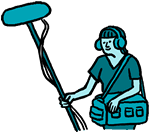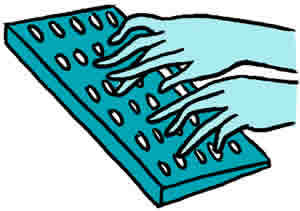Heritage Projects
Through Heritage Projects we support the people and organizations making history relevant and provocative through exhibits, publications, oral histories, and more.
These guidelines reflect information for last year’s grant cycle and will be updated ahead of applications opening for the next cycle. Please contact 4Culture staff with any questions.
Steps to Apply
1
What Heritage Projects Funds
1
What Heritage Projects Funds
 4Culture’s Heritage Projects program funds the identification, documentation, exhibition, creation, and interpretation of heritage and histories in King County, Washington. Requests can range from $2,000 to $15,000. “Heritage” in this program is defined as “the exchange of knowledge and experiences shaped by our past” and includes local history, ethnic history, Native cultures, folklore and intangible cultural heritage, and historic and archaeological resources in King County.
4Culture’s Heritage Projects program funds the identification, documentation, exhibition, creation, and interpretation of heritage and histories in King County, Washington. Requests can range from $2,000 to $15,000. “Heritage” in this program is defined as “the exchange of knowledge and experiences shaped by our past” and includes local history, ethnic history, Native cultures, folklore and intangible cultural heritage, and historic and archaeological resources in King County.
You can use this grant to:
- Create heritage resources including, but not limited to, books, guides, brochures, research projects, digital projects, oral histories, visual or audio recordings, museum exhibits and programs, and education curriculum.
- Preservation of material culture related to heritage in King County (please note that Collections Care program will not run in 2025).
- Produce special events and programs that highlight heritage in our region including, but not limited to: conferences, workshops, technical assistance programs, apprenticeship or training opportunities, historic tours, field schools, skill demonstrations, and programs that facilitate collaboration between heritage groups and practitioners.
- Create resources and programs that explore the themes of the 250th anniversary of America’s founding as it relates to people and communities in King County.
- Provide opportunities for populations underrepresented in mainstream heritage organizations including communities of color, LGBTQIA+ communities, youth, people with disabilities, and gender variant communities to work firsthand with heritage resources.
- Pay for materials and consumable supplies used for your project, publicity and outreach efforts for your project, transportation, and documentation.
- Compensation for the project team, professional consultants, heritage specialists, trainees, or staff time if work on the project is outside their regular work duties and payment is beyond their regular compensation structure.
You cannot use this grant for:
- Projects that do not focus on heritage in King County as a foundational element.
- Major equipment purchases or construction projects (we offer separate grants for these).
- General operating support, overhead costs and fees, utilities, employee benefits or any regular staff salaries (we offer separate grants for these).
- Elements of your project completed before funds are awarded: May 28, 2025.
- Projects for which fundraising or direct marketing is the primary purpose.
- Support for services and programs to be provided by the King County Landmarks Commission for land use regulation and archaeological resource management purposes, as described in K.C.C. chapter 20.62 (King County Code 4.42.125H).
- Religious worship or instruction, or programs that are only open to matriculating students.
Criteria
For this grant, panelists will use the below criteria to score each application:
- Project impact and public benefit: how your project meets the goals of your organization’s or personal mission and established needs in the community. How well your project helps expand or develop King County’s historical narrative and shows a potential to raise the visibility of heritage work in King County. Your project increases public access to heritage resources and programs, including clear efforts to make them accessible to many ages, disabilities, languages, and communities. Your project provides compelling and feasible public benefit for residents and visitors of King County.
- Quality and qualifications: how well your project activities and planning align with professional standards, best practices, or values of the community served. The qualifications of you and your project team align with the proposed project and its intended impact. Qualifications can be skill, experience, training, or knowledge-based.
- Feasibility: Your ability to complete your project within 24 months of the award date and with a realistic timeline, and thoughtful planning. This is demonstrated through the qualifications of the project team, realistic and balanced budget, and details provided in the Project Implementation section.
- Advancing equity: 4Culture’s mission focuses on racial equity and envisions a county where culture is essential and accessible to all. Your project specifically benefits communities of color and/or historically marginalized communities, The project serves or collaborates with members of these communities. This is not an eligibility requirement, but it is one of the factors the panel will consider.
Public Benefit: Why It Matters
Every time a visitor to Washington State stays in a hotel, they pay a Lodging Tax—this is where our funding comes from, and our mission is to put it back into the community. In your application, tell us exactly how your fellow King County residents will be able to enjoy and learn from your work. Read about public benefit more in depth here. Here are some ways you can provide public benefit:
- Free performances, exhibitions, workshops, screenings, or readings.
- Events in the often under-served areas of suburban or rural King County, to low-income, youth and senior groups, individuals with limited physical abilities, recent immigrants, or residents from minority races or ethnicities.
- Free, electronically accessible materials, including literary publications, audio, or video recordings.
Equity Investments
In order to combat inequities in our grantmaking, 4Culture has implemented Equity Investments. This practice incorporates indicators of structural inequity into our panel process, including geographic location, income, operating budget, audiences served, and project focus. By prioritizing these factors, we intend to more equitably distribute funds to communities that have historically been excluded from cultural funding.
Each of our grant programs implements an Equity Investment system tailored to the specific needs of its applicants; please read the After You Submit section of this page for details on how Equity Investments functions for this grant. This organization-wide practice —and what we learn about its impact—is an important step towards more equitable funding at 4Culture and throughout the King County cultural sector.
2
Are You and Your Project Eligible?
2
Are You and Your Project Eligible?
 You
You
- Individuals, organizations, community groups, unincorporated or fiscally sponsored groups may apply.
- Individual applicants must be at least 18 years old and a resident of King County when you apply and through the completion of your project.
- Organizations, community groups, unincorporated or fiscally sponsored groups must be located and operate within King County.
- Organizations that receive 4Culture’s Sustained Support in 2025 are not eligible to apply.
- K-12 schools, school districts, religious worship or instructions are not eligible.
- Individual applicants cannot represent or apply on behalf of ineligible entities.
- Current 4Culture staff, 4Culture Board members, and Advisory Committee members may not apply as an individual.
- If you receive funding, you’ll need to provide us with your Social Security number in order to receive payment. Organizations, community groups, and public agencies will need to provide us with a Tax ID or EIN in order to receive grant funds.
Your Project
- Your project must focus primarily on heritage and/or historical themes in King County. Heritage is defined as “the exchange of knowledge and experiences shaped by the past,” And includes local history, ethnic history, Native cultures, folklore and intangible cultural heritage, historic and archaeological resources in King County. Historical themes can be about people, memories, places, communities, and events. For further definitions, please see Helping You Succeed section.
- Your project must be accessible and provide public benefit to King County residents and visitors.
- Your request amount is between $2,000–$15,000. Requests submitted that are outside of the range are not eligible and will not be considered for funding.
- You may apply to fund the portion of a project that begin on or after May 28, 2025 (the award date). The public benefit of your project must be completed by June 1, 2027.
Have you considered applying to other 4Culture grants? If your project involves multiple disciplines—heritage, preservation, and/or arts—it may be eligible for consideration under more than one 4Culture projects funding program. You may request funding for different elements of your project through the separate funding programs, but must disclose the other 4Culture requests in your application. Contact Megumi Nagata at to discuss your project’s eligibility before applying.
3
Helping You Succeed
3
Helping You Succeed
 Workshops
Workshops
Workshops can make a real difference in the success of your application. They’re an opportunity for you to get your questions answered by a 4Culture grant manager and learn from other applicants. For virtual workshops, please register via the links provided to receive Zoom meeting information. You will need a personal Zoom account in order to attend a workshop. If you are unable to attend, a workshop recording is available below.
Workshops scheduled on February 4 and 12 will be in-person, drop-in sessions with grant managers for Art, Heritage, and Preservation Projects on hand to answer your questions. You do not need to register for these sessions.
Note: February 7 will be a panel discussion of Heritage Projects recipients and cover a range of topics such as project planning and tips for applicants. February 26 will be an Office Hours session and, while there will be no formal presentation, the grant manager will be on hand to answer any questions ahead of the March 12 application deadline.
Application Guide
Watch this step-by-step application guide video to assist you in the application process.
Resources
In the application, you will be asked to select a category of heritage your project works with. Each category is defined below. If none of the categories fits with your project but your project still centers heritage as defined in the guidelines, you may use “Other” category.
- “Local history” refers to the examination and documentation of people, communities, places, and events related to the area now geographically defined as King County.
- “Ethnic history” refers to the examination and documentation of communities that have immigrated and migrated to King County.
- “Native cultures” refers to the unique customs, beliefs, and practices shared across generations that are rooted in the long-standing histories of communities residing in the United States and territories prior to colonization. Native cultures are often foundational to contemporary identities of individuals and groups. Cultural practices may include: Performing arts; Recreational activities; Knowledge and practices concerning nature and the universe; Social practices; Ceremonies and practices related to life and death cycles; Craftsmanship; Oral traditions and expressions, including language as a vehicle of intangible cultural heritage
- “Folklore and intangible cultural heritage” refer to tradition-based creations of a cultural community that are expressed by members of that group and recognized as reflecting the expectations of that community and its cultural and social identify. Traditions are usually transmitted orally or by imitation; examples include language, literature, music, dance, games, mythology, rituals, and customs.
- “Historic and archaeological resources” refers to physical objects, sites, and other ephemera that represent histories and cultures of King County and preserved within King County.
The total available funding for Heritage Projects in 2025 is $965,000. In 2023, 75 applications were submitted and 41 of them received funding. Awards range from $923 to $10,000.
You can read a sample application that successfully received funding for inspiration, and view a list of last year’s recipients on our Awardees page.
As you work on your application, you may choose to work offline in a document. This application worksheet can be used as a tool as you work. It includes helpful tips and space to draft your responses.
Click to download the worksheet: Word | PDF
Need guidance on current practices or looking for inspirations in the heritage field? Check out the Heritage Field Resources page.
You can also read through the application questions before getting started:
- Project Description: what do you propose to do in your project? Describe the heritage content or historical themse of your project and the proposed project activities. What is the historical significance of the heritage content or historical themes to the community your project serves? How did you develop the idea for your project? If your project has multiple phases, please explain which phase of the project this grant will support.
- Project Impact and Public Benefit: describe the intended audience for this project, your history working with this intended audience, and impact or goals for your intended audience. Please explain how this project meets the established needs of the community served or aligns with your organization’s or personal mission. What are intended outcomes regarding the heritage content of this project? What resources, programs, tangible products, or other types of public benefit will result from this project? How will you provide public access to them? If your project has multiple phases, describe the public benefit of the proposed portion of the project. Please see the guidelines for our definition of public benefit.
- Advancing Equity: explain if this project will benefit specifically communities of color and/or historically marginalized communities in King County.. Will your project serve or collaborate with members of these communities? If so, please explain.
- Relevant Expertise, Experience, and Accomplishments: describe the project team who will plan, implement, and manage your project. Cite team members’ roles and their qualifications that are relevant and necessary to complete the work successfully, including but not limited to, their experiences, skills, and/or knowledge expertise. How will the project team ensure your project aligns with professional standards, best practices, or values of the community this project serves If you are working with heritage or historical resources from another culture or community, how are members of that community involved in this project?
- Project Implementation: provide a timeline and a work plan for this project. The work plan could include phases for planning, bidding process, fundraising, publicity, execution, public benefit, and evaluation of the intended goals identified in Project Impact section. Describe how you determined the appropriate timeline and work plan for this project. Remember, projects funded through this program should be completed within 24 months of the award date.
- Budget: provide the budget for the project. In the Budget Notes section, provide an explanation of the line items and a breakdown of how you intend to use the Heritage Projects funding. Explain how you will scale the project if you receive partial funding. If you are also applying to Art Projects or Preservation Special Projects for the same project, explain how those funds will be used. Please refer to the guidelines for eligible and ineligible uses of 4Culture funding.
4Culture staff can review draft applications and provide feedback with adequate notice. For full draft reviews, save your work in the online application and contact Megumi Nagata at by Wednesday, February 26. After that, we cannot review full drafts but will still be available to assist with specific questions and troubleshooting.
Contact
Translation and Assistance
The guidelines, a detailed explanation of how to apply, and the application are in English. If this is a barrier that stops you from understanding the grant or applying due to limited English writing ability, visual impairment, or you would like to request assistance to create an application, please contact or call (206) 296-7580 or TTY 711, and we will make sure you get the support you need. More ›
中文 (Chinese)
详细说明如何申请的指南以及申请本身均使用英文。如果由于英语写作能力有限、视力障碍而妨碍您对本资助的了解或申请,或者您希望请求协助来完成申请,请发送电子邮件至 或致电 (206) 296-7580 或 TTY (听障专线) 711 联系,我们会确保您获得所需的支持。了解更多相关信息 ›
Русский (Russian)
Руководство, подробная инструкция и форма заявки на английском языке. Если вам сложно разобраться в процедуре получения грантов или подачи заявок из-за ограниченных навыков письменного английского языка либо нарушений зрения, а также если вы бы хотели обратиться за помощью при составлении заявки, отправьте письмо на адрес электронной почты или позвоните по номеру (206) 296-7580 или 711 (телетайп), и мы позаботимся о том, чтобы вы получили необходимую помощь. Дополнительная информация ›
Soomaali (Somali)
Tilmaamaha, sharaxaadda faahfaahsan ee ku saabsan sida loo codsado, iyo waraaqda codsiga waxa ay dhammaan ku qoran yihiin Af-Ingiriisi. Haddii ay arrintani tahay caqabad kaa hor istaageysa fahamka deeqda ama codsashada oo ay sabab u tahay awoodda qorista Af-Ingiriisiga oo xadidan, araggaaga oo liita, ama aad jeclaan lahayd inaad codsato in lagaa caawiyo in aad codsi sameyso, fadlan la xiriir ama wac (206) 296-7580 ama TTY 711, waxaana xaqiijin doonnaa inaad hesho taageerada aad u baahan tahay. Xog badan ka ogow ›
Español (Spanish)
Las pautas, la explicación detallada de cómo enviar la solicitud y la solicitud están en inglés. Si esto le impide comprender la información relacionada con la beca o enviar una solicitud debido a una limitación en la capacidad para escribir en inglés, si tiene una discapacidad visual o si desea recibir asistencia para crear una solicitud, escriba a o llame al (206) 296-7580 o TTY 711, y nos aseguraremos de que obtenga la ayuda que necesita. Más información ›
Tiếng Việt (Vietnamese)
Hướng dẫn, giải thích chi tiết về cách nộp đơn va tài liệu áp dụng tất cả đều bằng Tiếng Anh. Nếu đây là rào cản khiến quý vị không hiểu được khoản trợ cấp hoặc cách nộp đơn do khả năng viết tiếng Anh hạn chế, do quý vị bị suy giảm thị lực hoặc muốn yêu cầu hỗ trợ để tạo đơn đăng ký, làm ơn liên hệ hoặc gọi (206) 296-7580 hay TTY 711 và chúng tôi sẽ hỗ trợ những gì quý vị cần. Để biết thêm chi tiết ›
4
After You Submit
4
After You Submit
 Timeline
Timeline
The deadline for this grant is March 12, 2025 at 5:00 pm PST. Most 4Culture grants take approximately three months from application deadline to when we announce our funding decisions. You can start your project—or the portion of your project described in your application—on or after May 28, 2025, and you must complete it by June 1, 2027.
Panel Process
We make our funding decisions through a panel process in which a group of peers working and volunteering in heritage field assesses your application. 4Culture staff recruits the panelists with considerations for various factors such as geography, expertise, and conflict of interest. 4Culture staff facilitates the panel but does not score applications or try to influence the outcome. If you are interested in learning how to become a panelist, please see our Get Involved page.
This program implements two practices towards advancing equity. First, there is a question specifically asking if your project has a primary focus to center and serve historically marginalized people or communities in King County. The answer to this question will be scored against the Advancing Equity criterion, which holds the same weight as the other three criteria for this program—five points.
Second, applicants or projects that are located within a 4Culture Equity Investment area are eligible for an equity investment. 4Culture recognizes that where an organization or cultural worker is based or provides its services can affect access to funding and other resources. Many cultural organizations and cultural workers in greater King County have less access to public and private support than those located in Seattle. To take a step towards balancing these disparities, applicants or projects located in a 4Culture Equity Investment area will receive additional consideration during the grant evaluation and awards process. Projects qualify as being in an Equity Investment area by meeting one of the following requirements:
- You or your project site are located outside of the City of Seattle.
- You or your project are located Seattle but also in a Communities of Opportunity.
Please contact if you have any questions
Contracts and Payment
If we select your project for funding, your grant manager will work with you to create a contract outlining the scope of your project and a payment schedule. Payments are made on a reimbursement basis. You’ll receive your funds once you have completed the public benefit component of your project—that’s why it’s so important to come up with a feasible way to share your project with the public.
Requirements and Appeals
Learn about what will be required if you are awarded a grant, and about the process for appeal of a 4Culture decision.
5
Apply
5
Apply
 Once you’ve started your application, you can save after each step and sign out of the grant portal. Your application will be saved as a draft and you can continue to work on up to the deadline. Once you click “Submit,” your application is final. Please do not hesitate to contact us if you have any questions during the process. The deadline to apply is March 12, 2025, at 5:00 pm PST. At that point, all required materials, including Demographic Information, should be submitted through the grant portal.
Once you’ve started your application, you can save after each step and sign out of the grant portal. Your application will be saved as a draft and you can continue to work on up to the deadline. Once you click “Submit,” your application is final. Please do not hesitate to contact us if you have any questions during the process. The deadline to apply is March 12, 2025, at 5:00 pm PST. At that point, all required materials, including Demographic Information, should be submitted through the grant portal.
What’s in the Application?
We will consider your application for funding after you have submitted all required materials listed here. We strongly recommend assembling them before you login and begin your application and encourage you to call or email us with any questions as you work on these materials.
Demographic Information
Your profile in our portal must provide demographic information for the current year for yourself and, if you are applying as an organization, for your board and paid staff. You will access the demographic update form through the portal, under “Your Profile” section. You must submit this information by the application deadline—March 12, 2025, 5:00 pm PST. We use this information to help us understand how well we are doing in our efforts to reach all communities in King County.
Application Form
The application can be accessed through our portal. Along with Project Budget and optional attachments, answer all narrative questions in the application form: Project Description, Project Impact and Public Benefit, Advancing Equity, Relevant Expertise Experience and Accomplishments, Project Implementation.
Project Budget
Use the budget form embedded in the application to record expected expenses and revenues for the project. In the notes section of Project Budget, explain the line items and how you intend to use the funds you’re requesting from 4Culture, and how you will scale your project if you receive partial funding. The total expenses and revenues must match, including in-kinds in expenses and revenues. Please refer to “What Heritage Projects Funds” section of the guidelines for eligible and ineligible uses of 4Culture funding.
Board of Directors (organization and group only)
Provide a list of your organization’s board members, including their service dates, term limits, and their areas of expertise, knowledge, or insights. For project-based groups and community groups, please provide a list of your group’s leadership if it is different from the Relevant Expertise section. If it is the same, simply state so. This is required for organizations and groups only, not for public agencies.
Attachments (optional)
You may submit up to three attachments to your application. Accepted file types are .doc, .docx, .pdf, .jpg, and .gif. Individual files must be less than 2 MB. To resize files to under 2 MB, you can use free websites like Image Resizer and PDF Resizer. Attachments may include photos, bids, estimates, letters of support from your project partners or communities served by the project, drawings, maps, copies of media coverage, previous research, studies, reports, or other documents to help illustrate your proposal. If your project involves the heritage of another community or if it involves a partner to execute the project, a letter of support is highly encouraged. Please be selective and remember that attachments are optional.
